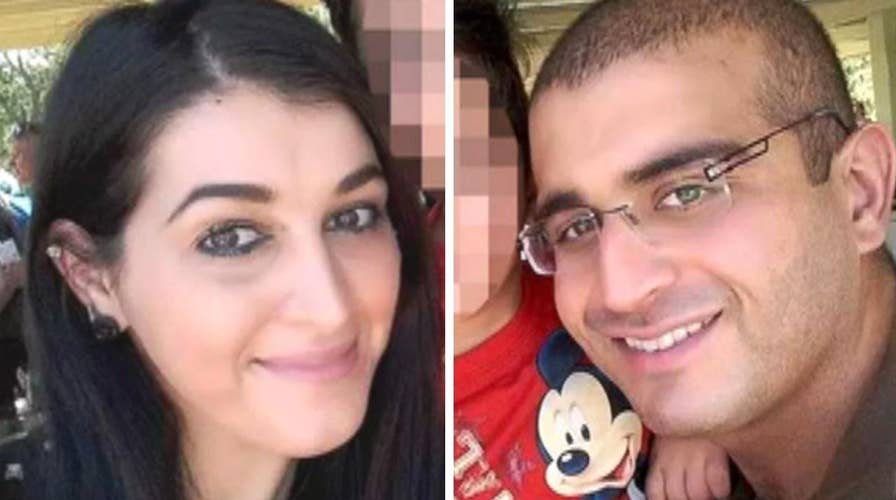Why would Omar Mateen's wife stay silent about attack plot?
Orlando terrorist's wife could soon be charged; insight on 'The Kelly File'
The father of the shooter who killed 49 people at the Pulse nightclub in Orlando this week said Tuesday that he did not believe his son was homosexual, despite reports that he was a regular at the gay bar.
"I don't know if he was, if that was his way of his life, but I don't believe so," Seddique Mateen told reporters at his home in Port St. Lucie, Fla. "I heard the news that you heard ... to me that is wrong, I didn't see it."
Earlier Tuesday, multiple media outlets reported that Omar Mateen repeatedly went to Pulse in the weeks and months before the massacre. The Orlando Sentinel quoted one patron who said that Mateen would "go over in the corner and sit and drink by himself, and other times he would get so drunk he was loud and belligerent."
Another patron told the Associated Press that Mateen would try to pick up men at Pulse, while a third told The Los Angeles Times that Mateen had messaged him on a gay chat and dating app.
The elder Mateen said Tuesday that he had never seen his son exhibit homophobic behavior except for one time in Miami when he saw two men kissing.
Seddique Mateen told reporters that he last saw his son on Saturday afternoon, approximately 11 hours before the shooting. The elder Mateen said Omar didn't stay at the house long and was acting normal.
He added that his son's second wife, Noor Zahi Salman, returned to the couple's apartment late Monday because she "needed clothes to wear." He said she is in shock, adding that she and his grandson are in Florida, but he didn't say where.
Federal prosecutors have convened a grand jury to investigate Salman, seeking to charge her as an accessory to 49 counts of murder and 53 counts of attempted murder as well as with failure to notify law enforcement about the pending terrorist attack and lying to federal agents.
On Monday, Seddique Mateen partially blamed the nightclub for the massacre, telling Sky News, "The club, [with] 300 or 400 people ... coming - they should have good security. If there was good security, he wouldn't have had this opportunity.
"Why the law enforcement team was so late - they should have neutralised him quick ... This should not have happened ... They should protect people that come in the club."
The Associated Press contributed to this report.


